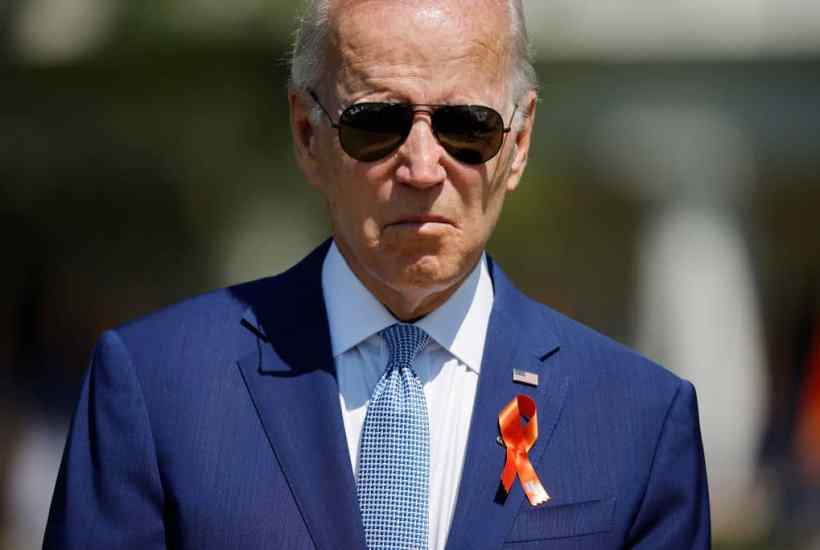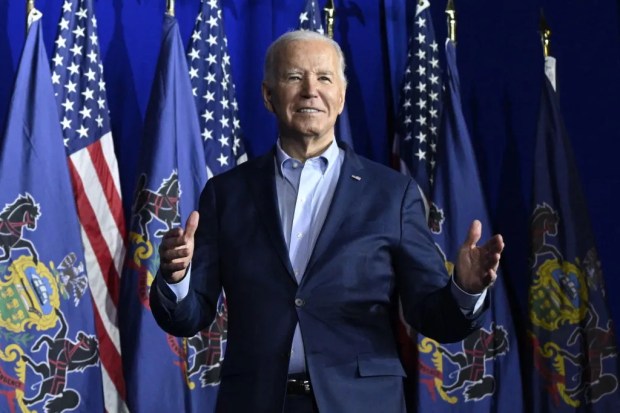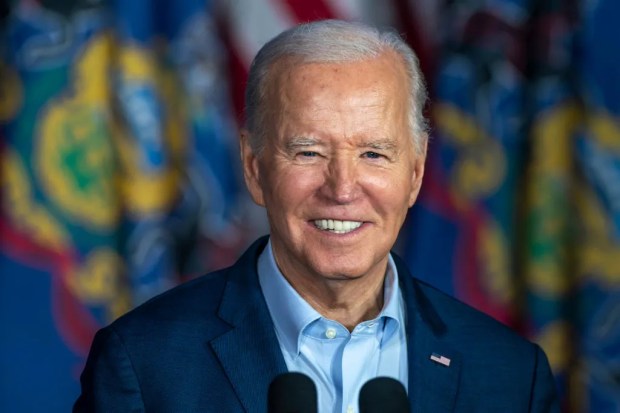‘You can always count on the Americans to do the right thing,’ said Winston Churchill, ‘after they have tried everything else.’ After much American talk of a ‘pivot to Asia’ and hence ‘withdrawal from the Middle East’, president Biden and his top team are visiting Israel today. From there, they will head to the heart of the Arab and Muslim worlds: Saudi Arabia.
Biden is coming from a White House full of young political staffers, most of whom have little respect for age and wisdom. In the Middle East, as with most Muslim-majority nations, a culture of veneration for the elderly still holds. Leaders, families, tribes, faiths, traditions and, with it, shame and honour resonate. By shifting away from the naive (‘progressive’) base of his political party, and connecting with Arab instincts that maintain regional order, Biden can help America and strengthen the liberal rules-based world.
In his own words, America needs the Middle East because:
‘Its waterways are essential to global trade and the supply chains we rely on. Its energy resources are vital for mitigating the impact on global supplies of Russia’s war in Ukraine. And a region that’s coming together through diplomacy and cooperation.’
Biden is a religious man. He will be flying from the ancestral homeland of the Jewish people, Israel, directly to Jeddah. This Tel-Aviv to Jeddah route is a historical first and should not be the last: Biden, like Carter before him, can help bring peace between the children of Abraham. Grandstanding won’t work, but subtle, humble and, most importantly, sustained secret channels away from the cameras will help Biden and the region’s leaders.
The president needs to show the Saudis and the moderate Arab leaders that being allies means something deep, substantive, mutual, and not merely transactional. They are not America’s petrol station.
A new generation of leaders is not trusting of America since the days of the Arab uprisings of 2011, when Barack Obama, against the advice of Hillary Clinton, sided with street protesters. Obama writes in his memoirs that Sheikh Mohamed bin Zayed, now president of the United Arab Emirates, asked him the strategic question that followed from his unwise decision: how could other leaders trust America?
This lack of trust and feelings of unreliability will linger as a dark cloud above this week’s meetings as Biden joins the Saudi convention of leaders of Gulf Arab nations and Egypt, Iraq and Jordan. But Biden can place America on a new footing and bring our allies ever closer, fill the security void in the region, and help keep China and Russia at bay. Here are eight ways the president can woo his Arab hosts.
1. In public, Biden’s request to the Gulf Cooperation Council (GCC) countries will be to increase global energy supplies. Arab leaders will not refuse him in front of the world’s media. He will be met with smiles and reassurances. Their culture is, after all, not to insult a guest: but they will want to see a real, tangible shift on their issues of concern.
2. Arab leaders will want Biden to address the meddling by Iran’s clerical government in several countries, including in Iraq, Syria, Lebanon, Yemen, Bahrain, Gaza and parts of Saudi Arabia. This expansionism, combined with its nuclear weapons programme, now threatens stability across the entire Middle East. The Biden administration’s overtures for a nuclear deal are failing. The world cannot afford a nuclear race in the Middle East. For our Arab and Israeli allies, Biden will need to issue a cast-iron guarantee that America will ensure our allies are stronger and safer, especially as China and Russia aid and abet Iran.
3. Arab leaders in Saudi Arabia, the UAE, Bahrain, Egypt, and Iraq have led reforms for greater equality for women, religious minorities, and isolated the extreme voices of religious fanaticism. Biden should welcome and acknowledge the changes sweeping the region, especially Saudi Arabia. Synagogues, temples, and churches in neighbouring United Arab Emirates and Bahrain are a harbinger of what is to come in Saudi Arabia if Biden supports our allies and their reforms.
4. Biden should repeat his support for the Abraham Accords, for it is an architecture of co-existence with Israel that offers a new reality for the Middle East. His flight to Jeddah from Israel was possible only because there is a new imagination of what is now achievable. Israeli and American tourists will visit Dubai and Jeddah in their millions (and vice versa) if this regional peace is expanded.
5. Biden’s staffers have one eye on the Democratic party’s base at home. American journalists will ask about human rights and democracy. Biden should not shy away, but be bold in saying he will raise these issues in private with his Arab hosts. Lecturing them in public will not yield results.
6. In private, Biden should continue the conversation on human rights, but expect pushback. America is a country with a Supreme Court that recently banned abortion for women, a past president that refuses to recognise Biden’s election victory, massive gun crime, and a Black Lives Matter movement. This makes it hard for the US to lecture others on human rights and democracy. Biden’s young staff should understand that at this historical juncture, institutions, the rule of law, gender parity, and pluralism are more important than democracy in the Middle East. Fail those preconditions, and democracy is a disaster. In Algeria, Iraq, Syria, Lebanon, Gaza, and Egypt the experiment for democracy miscarried with a vast loss of life for many innocents.
7. In private, Biden and his team must raise their work of bringing other major Muslim nations in open normalisation with Israel. Indonesia and Bangladesh, for example, as well as several African countries, including Tunisia, will help provide political cover for Saudi Arabia. Parts of the US State Department is working towards this aim, but should co-ordinate more closely with Gulf foreign ministries.
8. In private, Biden must offer incentives for the Saudi economy as churches and synagogues are opened across the Kingdom, blasphemy laws abolished, and the journey toward full gender equality continues. Those ideas, backed by the rule of law, will change the mood of the nation towards greater liberal pluralism and, in time, make it more attractive for capital flows. American-led global support and recognition will help win against extremists who oppose such openings.
Got something to add? Join the discussion and comment below.
Get 10 issues for just $10
Subscribe to The Spectator Australia today for the next 10 magazine issues, plus full online access, for just $10.




















Comments
Don't miss out
Join the conversation with other Spectator Australia readers. Subscribe to leave a comment.
SUBSCRIBEAlready a subscriber? Log in